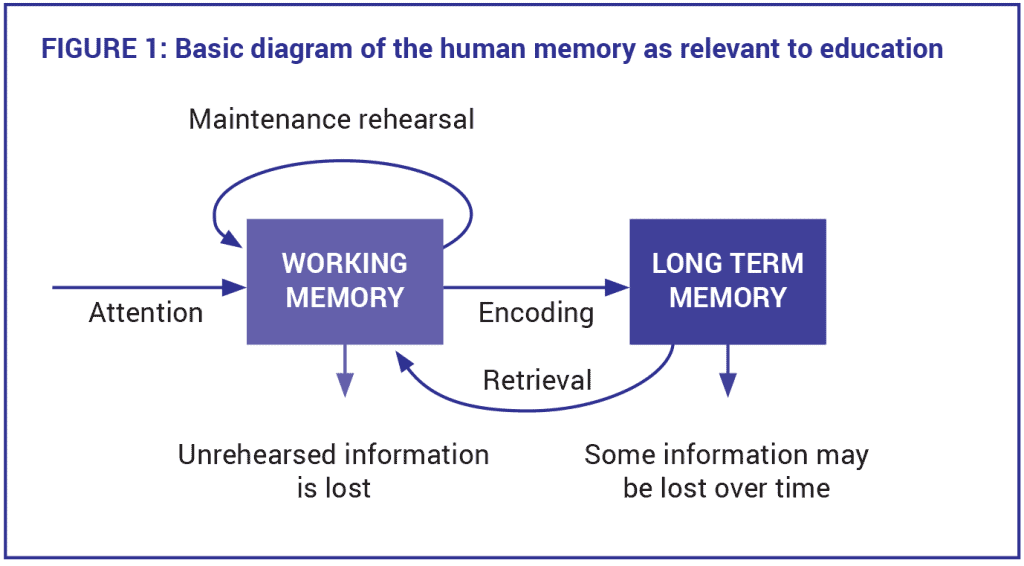Maximizing Instructional Time (Part 2) / Leadership in a Reading Revolution Newsletter | September 2025
|
Well friends, it finally happened. I'm late on a newsletter! But, now you know a real human writes this thing each month. Enjoy! A note: This is newsletter 2 of a 3-part series! Read the first one here. "I've come to the conclusion Sweller's Cognitive Load Theory is the single most important thing for teachers to know." - Dylan William Your Work Matters“Cognitive load refers to the amount of information our working memory can process at any given time. For educational purposes, CLT helps us to avoid overloading learners with more than they can effectively process into schemas for long-term memory storage and future recall.” (Office of Educational Improvement, Medical College of Wisconsin, 2022) Cognitive Load Theory was first explained by John Sweller in the 1980s and informs instructional design that matches the brain's cognitive capacity. The figure below shows a great explanation of what this entails. It's important to remember that our working memory has a small capacity for storing information, and requires rehearsal to move into long term memory. Key here is that rehearsal shows up multiple times, both to support the encoding into long term memory, but also through retrieval from long term memory as we add to our existing schemas.
Why does this matter for literacy leaders? One reason is relatively clear: we must be considering the way we format instruction for students so we can maximize learning opportunities. (ahem, maximize instructional time? the theme here?) If we have the opportunity to support teachers with planning literacy instruction, it behooves us to incorporate what cognitive load theory tells us about our instructional design. The biggest takeaway? EXPLICIT INSTRUCTION. When learning new information, research supports that direct, explicit instruction is more effective for "novices" than partial guidance. (Centre for Education Statistics and Evaluation, 2017). Does this apply to adult learners? This depends - are the adult learners we support novices? Cognitive load research also points to the "expertise reversal effect" which explains that using supports like worked examples are less effective as expertise increases. Additionally, the redundancy effect happens when learners are presented with additional information that is not directly relevant to learning, or with the same information in multiple forms. I imagine all of us can think of a professional development experience during which we felt overwhelmed with information, AND one during which we ignored the learning because we had already heard it before. Both experiences are true during this Science of Reading movement. As my colleague Justin Browning put it in a recent podcast, we are "knowledge bombing" teachers. Basically, we have overloaded teachers’ cognitive load inviting constant overwhelm. As this summary on CLT points out, “Even the most intelligent person can only process so much information at once. When someone is overwhelmed, they may struggle to process new information or make appropriate decisions. They may fail at a task that should be manageable given their knowledge and experience.” (2022) We are failing our teachers (and therefore our students) by choosing to focus on everything. Teachers are learners too. In fact, most teachers identify as “life-long learners” and we expect continual improvement in our profession, apparent with our many initiatives and professional development plans. Yet we often ignore how the brain learns when working with adults. How can we combine Cognitive Load Theory research and Andragogy (Knowles, 1968) in how we support educators? Why do both of these theories matter? There are three suggestions for addressing cognitive load (source); let’s consider these implications for literacy leaders: But, we cannot forget the Knowles’ Principles of Andragogy in how we support adults with learning:
Why is all of this important given our Science of Reading Movement? Many schools are engaging in professional learning, paired with new curriculum implementation and new assessments, among other new initiatives (like new tech systems). It’s A LOT of new learning. And in some cases, teachers haven’t chosen this new learning, nor are they intrinsically motivated to participate. While we may not be able to change an adult’s self-concept or intrinsic motivation, we CAN consider other principles of andragogy as we engage with adults while considering their cognitive load. In the table below, I’ve added a column to address the adult learner characteristics we can address. What does this have to do with maximizing instructional time? We are asking adults to drink from a fire hose on a Wednesday with loads of information, plan or annotate a lesson in the new curriculum that evening, and put it into practice the following day. And then we do it again the next week or month with new information. What we are asking of our teachers impacts their effectiveness in the classroom, EVEN WHEN THEY WANT TO IMPROVE. Yes, there is urgency to this work. But if we continue to rush it we won’t make the gains we seek. And we will keep losing teachers in the process. Leadership Moves:
What does this mean for me?If you are a decision-maker in your system, consider how you are contributing to the overwhelm of the educators we so desperately need to do this work well. How can you maximize instructional time in the classroom by maximizing their professional learning and planning time? Take some time to reflect on your current professional learning plan for this year and apply the principles of andragogy while considering the cognitive load. Recommended Resources Related Newsletters: New Announcement!Where have we been?
This month I've been on the soccer sidelines, A LOT. Some days it feels like soccer has taken over our lives! I'm enjoying watching our kids have fun out there and grow in a team sport. This has also been a busy month of working with clients and doing some contract work. Let's Work Together!At Linda Rhyne Consulting, we help schools and districts strengthen their instructional coaching and literacy systems so every educator thrives so they can impact student outcomes. From assessing your current approach, to designing strategic plans, to partnering with leaders for long-term implementation, we make sure your systems align with research, state standards, and your unique context. If you’re ready for cohesive, sustainable systems that work for your people, let’s talk. I'd love the chance to work with you/your team. Book a call today and let’s start designing the support your team deserves. Are you an individual or small team in need of on-demand support? Now, you can schedule a 90-minute session with me based on your needs at exactly the time you need it. The types of sessions are listed below.
For 90 minutes, we will meet and discuss your specific needs based on the information you provide when booking the appointment. The price is $250, paid upon booking the session (special pricing and booking link provided for current/former clients - check your email). Feel free to bring your team! Let's get your needs met at a time that serves you. Click here to bookmark the link or schedule a session.
Sharing the Work of Others
| Where can we connect?Bold font shows events at which I'm presenting. Power of Coaching Conference | Learn more here NC CEC 40th Annual Conference | Learn more here 2026 PaTTAN Literacy Symposium | Learn more here
Would you like me to join an upcoming event as a speaker? Please reply to this email to inquire about how I can support you.
|
Hi! I'm Linda
I'm glad you're here. The only way to grow a revolution is by expanding our reach. And we cannot leave the reading revolution to chance. Our children need us.
A note from Linda: I am seeking to meet with leaders for feedback on The Coaching System Growth Model, a transformative plan for improving coaching systems I’ve developed. If you’d like to participate, please reply or schedule a time here. “The expert at anything was once a beginner.” - Helen Hayes Your work matters. Last month, I finally met David and Meredith Liben in person after knowing them for years. I’ve been lucky to work with them on their Improving Reading for Older Students course...
A note from Linda: I am seeking to meet with leaders for feedback on The Coaching System Growth Model, a transformative plan for improving coaching systems I’ve developed. If you’d like to participate, please reply or schedule a time here. Feedback is very useful for telling us “where we are.” - Marshall Goldsmith Your work matters. We lament when teachers say “but I taught them that,” when data shows students didn’t learn “that.” And yet, we do the same thing to our teachers. We act as...
A note: This is newsletter 3 of a 3-part series! Read the part one here and part two here. How do you pick just one Archerism? Enjoy them all for this month's quote. (Source) Your Work Matters Time is the hottest commodity we have in education. We are constantly trying to figure out how to get more of it. We talk about how to decrease bathroom breaks, how to minimize transitions, how to squeeze in the minimum number of minutes for recess, etc. These are worthy efforts. We only get to work...


